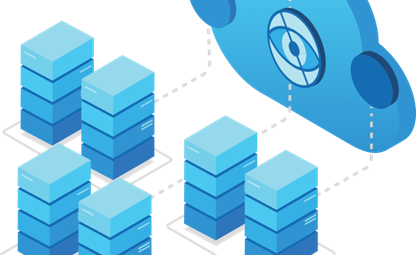12 Mar 2017
The Basics of .NET Framework & CMS

What is a Content Management System (CMS)?
A content management system refers to either a single application or a set of programs used to coordination and manage digital content.
Per TechTarget, CMSes help streamline office collaboration by "integrating document management, digital asset management and records retention functionalities, and providing end users with role-based access to the organization's digital assets." The true beauty of a content management system is its central interface. Being able to modify and maintain a site, including editing, publishing, and designing, from one platform is an essential aspect of website success.
Back to the Basics: The .NET Framework
How-To Geek explained it best by first breaking down the meaning of a Framework, "... a collection of Application Programming Interfaces (APIs) and a shared library of code that developers can call when developing applications...” and then applying that definition to Microsoft's .NET Framework:
"In the .NET Framework, that library of shared code is named the Framework Class Library (FCL). The bits of code in the shared library can perform all kinds of different functions ... The .NET Framework contains tens of thousands of pieces of shared code. This shared code makes the lives of developers much easier because they don’t have to reinvent the wheel every time their applications need to perform some common function."
Basically, the .NET Framework is a set of easily accessible code developed by Microsoft to help developers and programmers, as well as amateurs, manage, maintain, create, and design websites. Keep in mind, the .NET Framework is categorized as a community-developed software project, meant initially as a proprietary software, yet quickly standardized for easier and more wide consumption.
How to Choose a CMS for .NET Framework
- Commercial CMS
Most commercial content management systems, such as Sitecore, Sitefinity, EpiServer, Kentico, and Ektron, require payment for use. Of course, payment is dependent on factors such as number of users and editors, as well as the type and amount of content and content pages. These types of sites also offer full access to support services, upgrades, extensions, as well as access to a community of developers.
This is an essential understanding for those using with a .NET Framework.
In essence, programmers and developers combine their source code with .NET Framework in order to create software and manage sites. Therefore, investing in a quality CMS is incredibly important. On top of that, using a paid CMS provider guarantees all the necessary tools are at your disposal, as well as the appropriate time frame.
Of course, this is all dependent on the amount you're willing to pay.
- Open-Source CMS
While there are great advantages when paying for services, as mentioned above, there are also nasty pitfalls. For one, time frames are restricted to that of the licensor. If you choose a cheaper CMS service, these restrictions grow tighter.
With open-source content management systems, such as Umbraco, Orchard, and DotNetNuke, there is a broader sense of freedom. Instead of relying on support services, open-source CMS provides the tools to self-fix issues. Open-source is also largely community-based. Feedback, advice, and guidance can be obtained through open forums where experienced and inexperienced developer's share ideas and work together to tackle bugs.
Keep in mind, while quality of service may match that of a paid CMS company, open-source does not guarantee the same level of support.
Feel free to give us a call on .NET CMS development & support.


